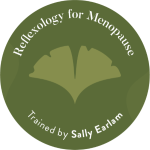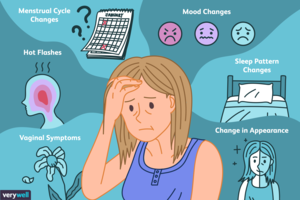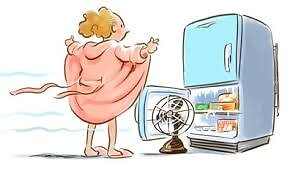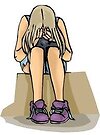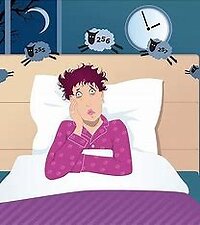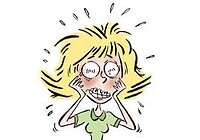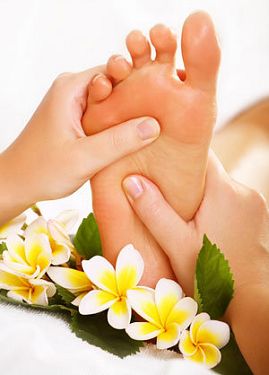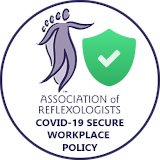Reflexology for Menopause
‘Menopause’ is the term used when menstruation has ceased completely within a woman, usually defined as not having had a period for 12 months or more (Nelson, 2008), and when a woman can no longer conceive naturally (NHS, 2019). According to the NHS (2019), menopause tends to occur, naturally, at any time between the ages of 45 and 60.
The transitory phase toward menopause is defined as ‘peri-menopause’, which normally occurs naturally due to the process of ageing, when oestrogen levels start to decline (McCarthy & Raval, 2020). However, peri-menopause may also be elicited ‘surgically’, following hysterectomy, when ovaries are removed, or ‘chemically’, as a result of post-operative hormone therapy drugs (e.g. Tamoxifen, an oestrogen receptor antagonist) that are administered to prevent recurrence of breast cancer (Smith et al., 2020).
Not all women exhibit peri-menopausal symptoms, but those that do, may experience:
Hot flushes
Night sweats
Heart palpitations
Irritability
Mood swings
Insomnia
Low libido
Vaginal dryness
Anxiety
Depression
Achy joints and/or muscles
Furthermore, for some women, symptoms can become more intense post-menopause, when oestrogen levels have diminished. Post-menopause is also a time when some women can be more susceptible to longer term conditions, such as heart disease, osteoporosis, high blood pressure, high cholesterol, diabetes, etc.
Currently, there are three approaches to treating symptoms of menopause:
Lifestyles changes
Stop smoking
Increase exercise
Improve diet
Limit alcohol consumption
Complementary and Alternative Medicine (CAM)
Reflexology, acupuncture, etc.
Cognitive Behavioural Therapy
Herbal remedies
Hormone Replacement Therapy (HRT)
However, according to the British Menopause Society (BMS), a recent survey highlighted 95% of women would try alternative therapies first, before HRT, as they are considered more ‘natural’ (British Menopause Society, n.d.)
What can Reflexology do to help YOU?
Reflexology supports women in the peri- and post-menopausal stages of life. It should help you feel calmer and more relaxed, improve sleep, and instill an overall sense of improved physical and mental wellbeing.
Studies suggest, reflexology can be beneficial in reducing the following symptoms that may arise on the menopause journey:
Vasomotor symptoms
As the hormones oestrogen and progesterone start to decline in the transition towards menopause (peri-menopause), women may experience vasomotor symptoms, due to hormone fluctuations, such as hot flushes, night sweats, heart palpitations, and changes in blood pressure.
Previous research has indicated that regular reflexology treatments may reduce vasomotor symptoms, thereby improving women’s quality of life. In a randomised controlled study carried out on 120 women, aged between 40 and 60, the intervention of reflexology, utilising the Ingham method, was found to significantly decrease the severity of hot flushes, sweating, and night sweats, in comparison to the control group which received non-specific foot massage (Gozuyesil and Baser, 2016).
Sexual domain
Additionally, an evaluation of all areas on the Quality-of-Life Scale indicated that reflexology significantly improved problems women were experiencing in the sexual domain. Dopamine, considered to be the most important neurotransmitter to play a role in sexual desire, drive and motivation, is closely interlinked to serotonin in order to maintain a careful chemical balance within the body. Research has shown that reflexology increases the synthesis of serotonin in the body, which not only improves mood, but in turn has an influence on levels of dopamine, which plays and integral role in the brain's reward system (Gozuyesil and Baser, 2016).
Depression
The hormone oestrogen influences serotonin, a brain chemical that promotes feelings of well-being and happiness (Amin et al., 2005). When oestrogen levels start to drop during peri-menopause, serotonin levels also start to decline. This can lead to increased irritability, anxiety and sadness, making you feel less able to cope with everyday life. In some cases, it may trigger depression, particularly if this is something you have experienced in the past.
Results from a randomised controlled clinical trial, carried out on 90 menopausal women suffering with depression, showed depressive symptoms were significantly reduced in the intervention group receiving regular foot reflexology, in comparison to the control group who received only routine menopausal care. Results concluded that foot reflexology is not only a safe and non-evasive intervention, but it was recommended that it be included as part of a treatment plan for reducing depression amongst menopausal women (Mahdavipour et al., 2019).
Sleep Disorders
It is well documented that too little sleep has detrimental effects on various aspects of health. With some studies suggesting poor sleep patterns may actually instigate psychological distress (Gupta et al., 2020), furthermore, continued disruption to the sleep-cycle, over time, may lead to neurogenerative diseases, such as Alzheimer’s and Parkinson’s (Cricco et al., 2001; Osorio et al., 2011; Tranah et al., 2011).
During the menopause transition, sleep disturbance is common due to the decline in hormones. Reduced oestrogen is associated with hot flushes, night-time sweating, anxiety, and frequent urination, all of which have an impact on sleep quality. Whereas, progesterone, thought to have sleep-inducting effects on brain pathways, also tends to diminish (Currie, 2021).
In a randomised controlled study on menopausal women, sleep quality improved in those receiving regular reflexology treatments. Results concluded, reflexology could be used as a non-pharmacological therapeutic intervention to promote sleep quality, particularly amongst post-menopausal women (Asltoghiri and Ghodsi, 2012).
Stress
For many, the menopause transition can occur when women are already having to deal with stress, possibly arising from work or financial worries, lack of social support, children leaving home, divorce, or ageing parents.
Normally, oestrogen and progesterone have a calming and protective influence on cortisol arising from stress. However, during menopause these hormones start to decline. With no buffer, women can become chronically stressed, triggering a continued release of cortisol from the adrenal glands. Research indicates that chronically elevated cortisol over time, increases the likelihood of severe menopausal symptoms (Cagnacci et al., 2011).
Although relaxation is the key to mitigating symptoms of stress (and in turn menopausal symptoms), it is also important to reflect on your currently lifestyle. When you are honest about what is causing stress, you can make constructive changes, that will assist in improving emotional wellbeing.
Studies suggest, regular reflexology can assist in reducing stress (Embong et al., 2017). However, best results will be achieved by taking an holistic approach (Menopause Matters, n.d.), such as:
- improving diet
- increasing exercise
- stopping smoking
- reducing alcohol
- finding enjoyment and purpose in life
HRT
Although menopause is a natural process, and whilst lifestyle changes and taking time out for relaxation can make a huge difference, sometimes women need some additional help.
Hormone replacement therapy (HRT) is now considered a safe and effective option for many women struggling with menopause symptoms (NHS Choices, 2019), however, it can initially cause side-effects, such as:
- Bloating
- Breast tenderness
- Nausea
- Oedema
- Headaches
- Mood swings
Reflexology, being a complementary therapy, works alongside conventional medicine (BUPA, 2015), therefore, it can quite safely be used in conjunction with HRT to mitigate side-effects.
References
Amin, Z., Canli, T. and Epperson, C.N. (2005). ‘Effect of Estrogen-Serotonin Interactions on Mood and Cognition’, Behavioral and Cognitive Neuroscience Reviews, Vol. 4, No. 1, pp.43–58. [Online] Available at: doi:10.1177/1534582305277152.
Asltoghiri, M. and Ghodsi, Z. (2012). ‘The effects of Reflexology on sleep disorder in menopausal women’, Procedia - Social and Behavioral Sciences, Vol. 31, pp.242–246. [Online] Available at: doi:10.1016/j.sbspro.2011.12.049.
BUPA UK. (2015). ‘Complementary therapies’, [Online] Available at: https://www.bupa.co.uk/health-information/complementary-therapies/complementary-therapies.
British Menopause Society. (n.d.).’ Non-hormonal-based treatments for menopausal symptoms’ [Online] Available at: https://thebms.org.uk/?s=alternative+therapies
Cagnacci, A., Cannoletta, M., Caretto, S., Zanin, R., Xholli, A. and Volpe, A. (2011). ‘Increased cortisol level: a possible link between climacteric symptoms and cardiovascular risk factors’, Menopause, Vol. 18, No. 3, pp.273–278. [Online] Available at: doi:10.1097/gme.0b013e3181f31947.
Cricco, M., Simonsick, E. M., and Foley, D. J. (2001). ‘The impact of insomnia on cognitive functioning in older adults’, Journal of the American Geriatrics Society, Vol. 49, pp. 1185-1189. [Online] Available at: doi:10.1046/j.1532-5415.2001.49235.x.
Currie, H. (2021). ‘Menopause and insomnia’ Women’s Health Concern. [Online] Available at: https://www.womens-health-concern.org/help-and-advice/factsheets/menopause-and-insomnia/.
Embong, N.H., Soh, Y.C., Ming, L.C. and Wong, T.W. (2017). ‘Perspectives on reflexology: A qualitative approach’, Journal of Traditional and Complementary Medicine, Vol. 7, No. 3, pp.327–331. [Online] Available at: doi:10.1016/j.jtcme.2016.08.008.
Gozuyesil, E. and Baser, M. (2016). ‘The effect of foot reflexology applied to women aged between 40 and 60 on vasomotor complaints and quality of life’, Complementary Therapies in Clinical Practice, [Online] Vol. 24, pp.78–85. Available at: doi:10.1016/j.ctcp.2016.05.011.
Gupta, R., Grover, S., Basu, A., Krishnan, V., Tripathi, A., Subramanyam, A., Nischal, A., Hussain, A., Mehra, A., Ambekar, A. and Saha, G. (2020) ‘Changes in sleep pattern and sleep quality during COVID-19 lockdown’, Indian Journal of Psychiatry, Vol. 62, No. 4, pp.370-378 [Online] Available at: doi: 10.4103/psychiatry.IndianJPsychiatry_523_20
McCarthy, M. and Raval, A. P. (2020). ‘The peri-menopause in a woman’s life: a systemic inflammatory phase that enables later neurodegenerative disease’, Journal of Neuroinflammation, Vol. 17, No. 1. [Online] Available at: https://doi.org/10.1186/s12974-020-01998-9
Mahdavipour, F., Rahemi, Z., Sadat, Z. and Ajorpaz, N.M. (2019). ‘The effects of foot reflexology on depression during menopause: A randomized controlled clinical trial’, Complementary Therapies in Medicine, Vol. 47, p.102195. [Online] Available at: doi:10.1016/j.ctim.2019.102195.
Menopause Matters (n.d.). ‘Diet, Exercise & Lifestyle’ [Online] Available at: https://www.menopausematters.co.uk/diet.php.
NHS. (2019). ‘Overview – Menopause’, NHS. [Online] Available at: https://www.nhs.uk/conditions/menopause/
NHS Choices (2019). ‘Treatment – Menopause’, NHS. [Online] Available at: https://www.nhs.uk/conditions/menopause/treatment/.
Nelson, H. D. (2008). ‘Menopause’, The Lancet, Vol. 371, No. 9614, pp.760–770. [Online] Available at: https://doi.org/10.1016/s0140-6736(08)60346-3
Osorio, R. S., Pirraglia, E., Aguera-Ortiz, E. H., During, H., Sacks, I., Ayappa, J., Walsleben, A., Mooney, A., Hussain, L., Glodzik, B., Frangione, P., and Martinez-Martin, P. and de Leon, M. J. (2011). ‘Greater risk of Alzheimer’ disease in older adults with insomnia’, Journal of the American Geriatrics Society, Vol. 59, pp. 559-562. [Online] Available at: doi:10.1111/j.1532-5415.2010.03288.x.
Smith, A. B., Fawkes, N., Khammo, N., and Hood, S. (2020). ‘The Humanistic and Economic Impact of Vaginal Dryness in Premenopausal, Perimenopausal, and Postmenopausal Women’, Journal of Women’s Health. [Online] Available at: https://doi.org/10.1089/jwh.2019.8001
Tranah, G.J., Blackwell, T., Stone, K.L., Ancoli-Israel, S., Paudel, M.L., Ensrud, K.E., Cauley, J.A., Redline, S., Hillier, T.A., Cummings, S.R., Yaffe, K. and SOF Research Group (2011). ‘Circadian activity rhythms and risk of incident dementia and mild cognitive impairment in older women’, Annals of neurology, Vol. 70, No. 5, pp.722–32. [Online] Available at: doi:10.1002/ana.22468.
Relax, Rebalance, Re-energise...
